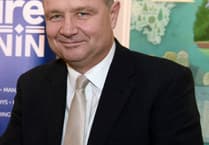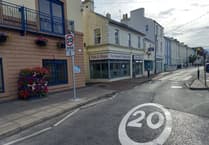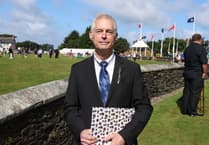A bid to save 25 elm trees in the south of the island from being cut down moves to the House of Keys today (Tuesday).
The newly formed Protect the St Mark’s Elms Positive Action Group is planning a protest outside the Tynwald building this morning at 9.30am in follow up to Sunday’s successful protest in the hamlet itself.
The latest demonstration comes as an emergency question has been put forward for today’s House of Keys sitting by South Douglas MHK Paul Quine on the subject.
Protesters are expected to then make their way into the into the public gallery to watch the sitting and Minister for Environment, Food and Agriculture Geoffrey Boot MHK’s response to Mr Quine’s question.
The protest comes after the Manx Wildlife Trust condemned the approval of plans that would see 25 elms removed to improve access to Ballavarvane Farm, St Mark’s off the Braaid Road.
Leigh Morris, chief executive of MWT, said: ’It’s a long-term environmental feature for the island and that’s why we’re so sad that they’re planning to make such a hole in it.’
Mr Morris added: ’Our best guess is that they’re 100 years old and they were actually made registered trees in 1982, so 40 years ago they were clearly significant enough to be given some sort of duty of protection in the island.’
The MWT’s comments last week triggered calls for a U-turn and an online petition which has attracted more than 30,000 signatures and support worldwide, including from TV naturalist Chris Packham.
On Friday Mr Boot asked for a review of the decision to talk through other options which could be considered to help address the access issues. The weekend’s protest attracted more than 250 people to St Mark’s Green to voice their opposition to the trees being felled.
Douglas councillor Devon Watson who helped organise it said: ’Thirty-one thousand people signed the petition within 72 hours and hundreds turned up to protest against environmental destruction.
’It’s really good to see mobilised environmental action in this way.
’This shows our spaces belong to the community, rather than those who have the wealth to make changes.’

.jpeg?width=209&height=140&crop=209:145,smart&quality=75)


Comments
This article has no comments yet. Be the first to leave a comment.